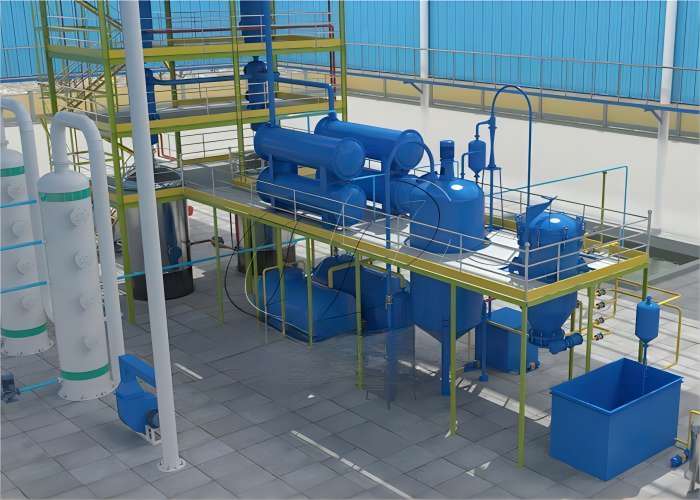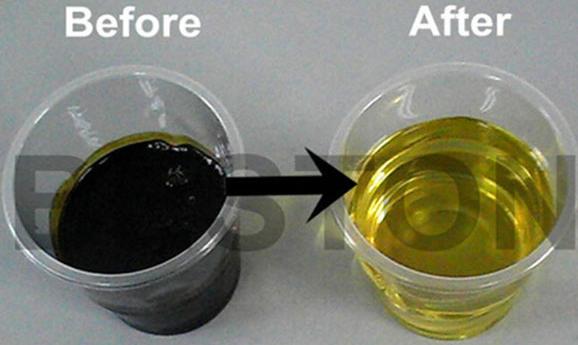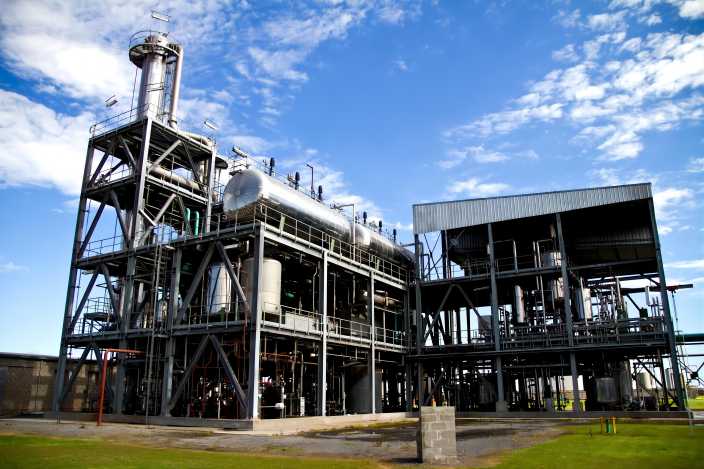How to Recycle Used Motor Oil?
Recycling used motor oil is not only an environmentally responsible practice but also a lucrative business opportunity. As environmental consciousness rises and the demand for sustainable practices increases, used oil recycling plants are becoming crucial for responsible waste management.In this article, we’ll delve into the used motor oil recycling process, the benefits of investing, and key factors to consider when choosing the right equipment.
What is Used Motor Oil Recycling?

Motor oil is essential for lubricating the moving parts of engines, reducing friction, and preventing wear and tear. Over time, however, the oil degrades and becomes contaminated with dirt, metal particles, water, and chemicals, making it less effective and potentially harmful to the engine. Disposing of used motor oil improperly can have severe environmental consequences. A single gallon of used motor oil can contaminate a million gallons of fresh water—a staggering impact on ecosystems and human health.
By recycling motor oil, we can:
- Protect Water Resources: Preventing used oil from entering waterways helps safeguard aquatic life and ensures cleaner drinking water.
- Reduce Soil Contamination: Proper recycling prevents toxic substances from seeping into the ground, preserving soil health and fertility.
- Lower Greenhouse Gas Emissions: Recycling reduces the need for new oil production, which in turn lowers the carbon footprint associated with extracting and refining crude oil.
Recycling used motor oil ensures that the oil is treated and repurposed instead of being discarded. This process not only protects the environment but also transforms waste into a valuable commodity.
The Used Motor Oil Recycling Process
The process of recycling waste engine oil typically involves several key steps:
Collection and pretreatment: Waste oil is collected from various sources such as car stores, rapid lubrication facilities, and individual consumers. Then it is transported to a recycling plant for pre-treatment to remove pollutants such as water and solid particles. This may involve screening, filtration, and sedimentation tanks to separate large debris, dirt, and metal shavings.
- Dehydration and vacuum distillation: Dehydrate the pre-treated oil to remove moisture. Water can cause corrosion and reduce the effectiveness of lubricants, so thorough removal of water is crucial. This is usually achieved by heating oil in a controlled atmosphere container or using centrifugal force to separate water.

Next, vacuum distillation separates the oil into various fractions based on its boiling point. By heating the oil in a vacuum chamber at a lower temperature, the process minimizes the risk of damaging valuable components of the oil. This separation produces different fractions, such as light oil (very suitable for fuel mixing), heavy lubricant fractions, and asphalt materials.
- Hydrogenation treatment: Lighter fractions may require further treatment to remove impurities such as sulfur and nitrogen. These impurities can cause emissions and reduce the lubrication performance of the oil. Hydrogenation treatment utilizes hydrogen gas and catalysts to convert these impurities into harmless by-products such as hydrogen sulfide and ammonia, which are then removed from the oil.
- Mixing and Refining: Then, the dehydrated and decontaminated oil fractions are mixed to meet specific product specifications. According to the factory’s capabilities, some factories may further refine the oil into high-quality base oil for new lubricants. This re refining process typically involves additional steps such as solvent extraction and clay treatment to remove remaining impurities and achieve the required viscosity and performance characteristics.
Through this multi-stage process of converting waste oil, recycling factories can produce valuable products, such as refined base oil, lubricating oil, industrial fuel oil, and asphalt increment agents for road construction. This not only reduces our dependence on raw oil but also keeps harmful substances away from landfills and the environment.
Why Invest in a Used Motor Oil Recycling Plant?

The used motor oil recycling industry offers a compelling opportunity for businesses seeking both environmental and financial rewards. Here’s a deeper dive into the reasons why investing in a used motor oil recycling plant can be a strategic move:
- Growing Market Driven by Regulation and Sustainability: Environmental regulations around used oil disposal are becoming increasingly stringent. Many regions mandate the collection and proper processing of used oil, creating a guaranteed source of feedstock for your recycling plant. Additionally, the growing focus on sustainability practices is driving demand for recycled products. Consumers and businesses alike are actively seeking out environmentally responsible alternatives, making recycled oil a highly sought-after commodity.
- Profitability from a Valuable Commodity: Used oil, when properly recycled, can be transformed into valuable products. High-quality base oil derived from used oil can be used to manufacture new lubricants, while other fractions can be used for industrial fuel or asphalt extenders. This creates a steady revenue stream for your business.
- Environmental Benefits and Positive Brand Image: Investing in used oil recycling demonstrates your company’s commitment to environmental responsibility. This not only fosters positive brand image and consumer trust, but it can also open doors to partnerships with environmentally conscious businesses. Additionally, by diverting used oil from landfills and improper disposal, you’ll be contributing to a cleaner environment and the conservation of natural resources.
- Government Incentives and Financial Support: Many governments recognize the importance of used oil recycling and offer incentives to encourage investment in this sector. These incentives can take the form of grants, tax breaks, or low-interest loans, significantly reducing the upfront cost of establishing your recycling plant.
- Long-Term Investment with Future Growth Potential: The used oil recycling industry is projected for continued growth in the coming years. As regulations tighten and the demand for sustainable solutions increases, the market for recycled oil products is expected to expand. Investing in a used oil recycling plant positions your business to capitalize on this long-term trend.
By taking advantage of the confluence of environmental regulations, consumer demand for sustainable solutions, and government support, investing in a used motor oil recycling plant presents a unique opportunity to establish a profitable and environmentally responsible business venture.
Conclusion
Recycling used motor oil is a critical practice for environmental sustainability and economic growth. PurePath offers a variety of used motor oil recycling plants that turn used motor oil to base oil or diesel. If you are interested in investing in a used motor oil recycling plant, PurePath will be your best partner. Feel free to contact us!







